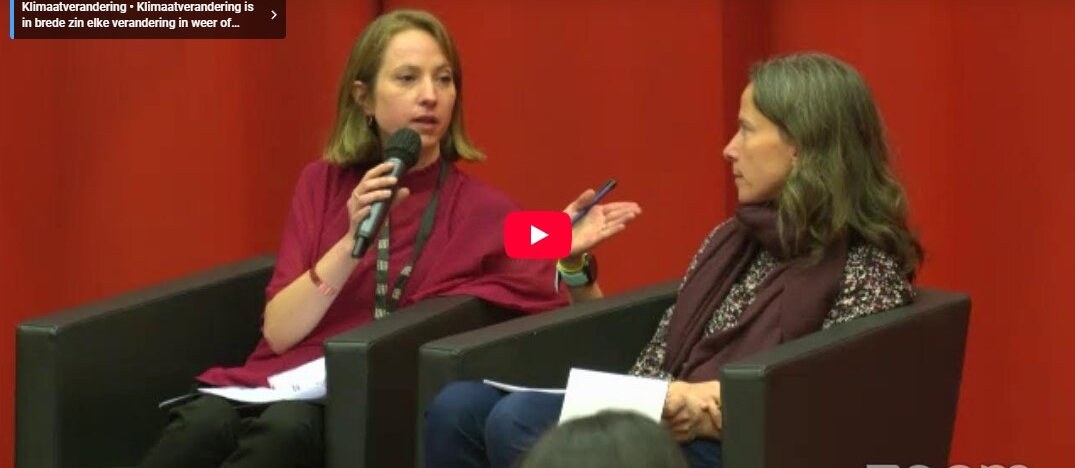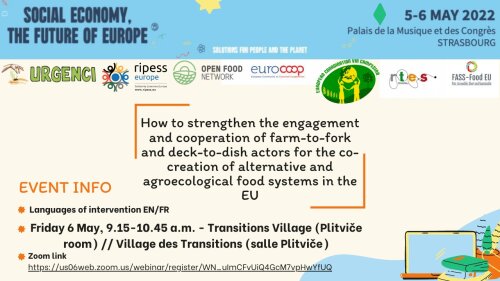Social Economy, the future of Europe (Strasbourg, 5-6 May 2022)
Around 1000 social economy stakeholders gathered in Strasbourg on 5-6 May 2022 for the conference ‘Social Economy, the future of Europe’ (venue: Palais de la Musique et des Congrès). This conference, organised by the French Presidency in Strasbourg, has brought together social economy actors within the framework of multiple roundtables with academics, policy-makers, businesses and social movements to discuss solutions for people and the planet in a quest to scale up the social economy.
FASS-food was presented in one of the round tables of the conference. The roundtable put together university researchers and social movements and was called: “How to strengthen the engagement and cooperation of farm-to-fork and deck-to-dish actors for the co-creation of alternative and agroecological food systems in the EU”.
Find further information on the conference here.
Strasbourg European Conference on Social Economy


BIO becomes FASS (Nurnberg, 28 July 2022)
Organized in the framework of BIOFACH 2002, world’s leading Organic food fair in Nurnberg (Germany), the aim of the conference was both to discuss the main results of the FASS-Food EU research project and to give space to some of the stakeholders directly involved in it, especially focusing on Solidale Italiano. The final open debate was centered around some key questions:
1. Is Fair Trade for Northern Producers relevant?There is a perception that labour conditions are good in Europe because of strong labour oversight and regulation. However, reality is that there are lots of grey areas and farming in Europe is dependent on (often illegal) migrant labour – both in the North and the South. Despite exploitation of cheap labour, producers/farmers struggle to make a living from farming – even with CAP subsidies. The Fair Trade principles can help address the issues of buyers exploiting their disproportionate bargaining power to push down farmgate prices.
2. Is public procurement fundamental to setting a standard for buyers?Fair Trade can help signal to public procurers how to evaluate bids for tenders. Contracts at the local/national/EU level should be awarded on a multi-criteria basis (not just lowest bid), including social and environmental sustainability/justice dimensions. The models of domestic Fair Trade initiatives can inform the elaboration criteria at these different levels. For example the new Swiss law on public procurement has worked well to support changes especially procurement of food, which has resulted in some benefit for farmers/food producers focusing on social and environmental sustainability rather than quantity and price in their production.
3. What policy tools can address the problem of food waste?There is the need for consumers and retailers awareness campaigns overturning the excessive emphasis on the esthetical characteristics of food products.There is also the need to foster the re-establishment of a local-scale network of food processors facilities easing the valorization of food products.
Read here the full report of the event.